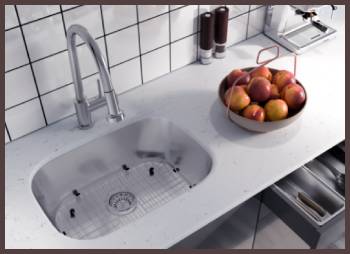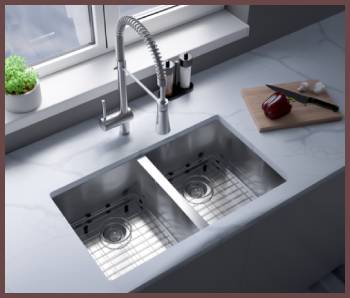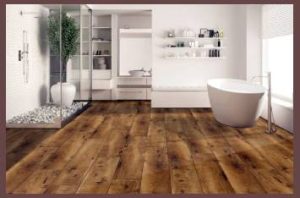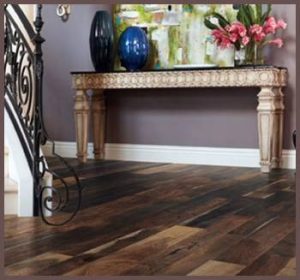In the vast universe of kitchen fittings, the ‘Pelican Sink’ has created a niche for itself. Designed to serve you with style, durability, and excellent functionality, it has won over many homeowners. But like every product, it has its pros and cons.
Let’s dive into the world of Pelican Sinks, exploring their strengths, weaknesses, and determining whether they’re right for your kitchen.
Pros of Pelican Sinks

- Supreme Quality and Durability
Pelican Sinks pride themselves on quality and longevity. Constructed with premium stainless steel, the sinks can withstand years of regular use. The stainless steel, generally 16 or 18-gauge, is resistant to both physical and environmental damage, ensuring the product’s lifespan.
- Variety and Versatility
Pelican Sinks come in a plethora of sizes, styles, and designs. Whether you’re a fan of undermount or top mount, single or double bowls, or even apron-front sinks, Pelican has something for you. This broad range enables homeowners to choose a sink that perfectly fits their kitchen decor and functional needs.
- Easy Maintenance
When it comes to cleaning and maintenance, Pelican Sinks are a dream. The stainless-steel surfaces are straightforward to clean and are less prone to staining. Moreover, the brushed finish on many models hides water spots and scratches, reducing the frequency of thorough cleaning.
Read More: Differences Between Kohler 6488 And 6489 Kitchen Sink
Cons of Pelican Sinks

- Noise Levels
One potential drawback of Pelican Sinks is the noise level. Stainless steel sinks, while durable and easy to clean, can be a bit noisy during use. However, many Pelican models come with sound-absorbing pads to minimize this issue.
- Aesthetic Limitations
While Pelican Sinks offer a range of styles and designs, the majority of their offerings are in stainless steel. For those wanting a farmhouse aesthetic with a porcelain sink or a modern vibe with composite granite, the choices can be limited.
- Price Range
Quality and durability often come with a price. Pelican Sinks tend to be pricier than some other brands in the market. However, it’s important to note that the long-term benefits of investing in a high-quality sink often outweigh the initial costs.
Frequently Asked Questions (FAQs)
There’s no one-size-fits-all answer to this question, as it depends on personal preferences. However, Pelican is recognized for their high-quality stainless-steel sinks. Other notable manufacturers include Blanco, Kohler, and Kraus.
Pelican Sinks are proudly manufactured in the USA. This not only assures quality craftsmanship but also ensures adherence to high safety and environmental standards.
Stainless steel sinks, like those produced by Pelican, are among the toughest kitchen sinks available. They resist chipping, cracking, and staining, which makes them a long-lasting choice.
Square sinks can be a little more challenging to clean due to their sharp corners. However, the brushed finish on many Pelican sinks helps to hide dirt and stains, making maintenance easier.
Stainless steel sinks, especially those of 16 or 18-gauge, are highly durable and tend to last a long time with proper care. Pelican Sinks, in particular, are known for their longevity.
Both 18-gauge and 16-gauge sinks have their benefits. An 18-gauge sink is thinner and less expensive, but a 16-gauge sink is thicker, sturdier, and typically has a higher level of sound insulation. Both gauges are highly resistant to damage, making them excellent choices for kitchen sinks.
Read More: About Fossil Blu Sink
Comparing Pelican Sinks to Competitors
When it comes to kitchen sinks, the market isn’t short of high-quality competitors. Let’s take a look at how Pelican fares against some of them.
Blanco
Blanco is renowned for their composite granite sinks, giving homeowners a visually appealing, sturdy, and hygienic alternative to stainless steel. Blanco sinks might edge Pelican in terms of aesthetic appeal, especially for those seeking a modern look. However, they can be more costly and less versatile in design.
Kohler
Kohler offers a broader range of materials, including cast iron, composite, and stainless steel, with a wide array of styles and colors. They might win over Pelican when it comes to variety, but their premium models can be quite expensive.
The stainless steel sinks from Kohler are comparable in quality to Pelican, but the cost often runs higher.
Kraus
Kraus, like Pelican, is known for their sturdy stainless steel sinks. Their sinks also feature noise-reducing technology and a variety of designs. Kraus offers competitive pricing, making it a strong contender.
However, Pelican holds its own with an impressive range and commitment to quality and durability.
Wrapping Things Up
To wrap things up, it’s clear that the Pelican Sink has its unique standing amidst strong competition. With its focus on durability, range of design, and easy maintenance, it’s an investment that can serve you well for years.
Nevertheless, it’s crucial to weigh the pros and cons based on your specific needs and preferences, as well as the kitchen aesthetics you’re aiming for. No matter your choice, a good sink is a long-term investment that can significantly influence your kitchen experience.



